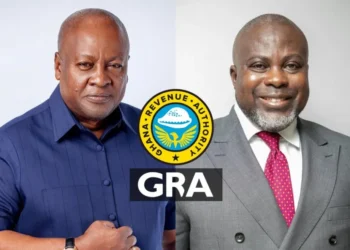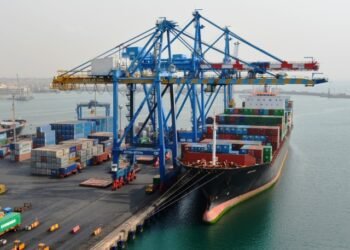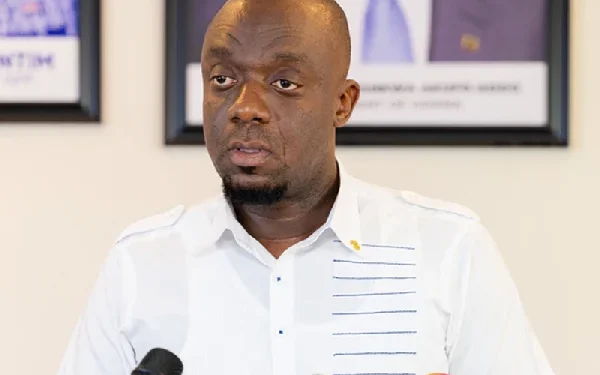The Ghana Revenue Authority (GRA) has placed several state-owned enterprises and public institutions under scrutiny after disclosing that they collectively owe the state an alarming GH¢47 million in unpaid taxes.
Appearing before the Public Accounts Committee (PAC) on Monday, August 25, 2025, the Commissioner-General of the GRA, Anthony Kwasi Sarpong, said the Authority is intensifying efforts to retrieve the arrears.
According to him, the list of defaulters includes well-known state-owned enterprises such as GIHOC Distilleries Company Limited, the Tema Oil Refinery (TOR), and the Graphic Communications Group Limited. The revelation has sparked public debate about accountability and financial management within Ghana’s state institutions.
In the details presented before PAC, the Graphic Communications Group emerged as the biggest debtor, with GH¢3.4 million in unpaid taxes. This disclosure came as a shock to many, considering Graphic’s reputation as one of the country’s leading state-owned media houses.
GIHOC Distilleries followed with a debt of GH¢2.1 million, while the Tema Oil Refinery was cited for owing GH¢136,000. These figures, though varying in scale, underscore what experts describe as a worrying trend of financial indiscipline and weak compliance within state-owned entities.
Cash Flow Challenges Cited as Excuse
Explaining the reasons behind the mounting arrears, management of the GRA indicated that cash flow constraints were the most common excuse offered by the indebted institutions. Many of the enterprises reportedly struggle to meet operational costs, let alone statutory obligations such as tax payments. “While we acknowledge the operational difficulties some of these entities face, taxes are mandatory obligations and cannot be overlooked,” the GRA Commissioner-General emphasized.
Industry observers argue that these explanations expose deeper structural inefficiencies within state enterprises that continue to burden the national purse instead of contributing meaningfully to it.
Beyond the GH¢47 million in corporate tax arrears, the GRA also revealed staggering unpaid Value Added Tax (VAT) liabilities amounting to GH¢116 million.
According to the Commissioner for Domestic Tax Revenue, Edward Apenteng Gyamerah, this poses an even greater challenge to revenue mobilization efforts. “The VAT arrears highlight systemic weaknesses in compliance and enforcement,” he explained, stressing that businesses—whether state-owned or private—must be held to the same standards.
The revelation of VAT debts adds a new layer of urgency to Ghana’s ongoing revenue mobilization drive, as the government works to bridge budget deficits and reduce reliance on external borrowing.
Members of the Public Accounts Committee expressed concern over the revelations, questioning why institutions fully owned or backed by the state continue to default on taxes. They described the situation as a direct contradiction of government’s revenue mobilization goals.
The PAC urged the GRA to adopt stringent measures, including garnishee orders and withholding payments due to these enterprises, to recover the outstanding amounts.
GRA Vows Tougher Enforcement
In response to the concerns, Mr. Sarpong assured the committee and the public that the GRA is intensifying enforcement mechanisms to ensure compliance.
He noted that debt recovery strategies, including stronger audit processes, direct negotiations with management, and in some cases, legal actions, will be deployed. “The Authority will not relent in ensuring that all taxes owed the state are paid. Compliance must be universal—no institution, private or public, is exempt,” he stressed.
Meanwhile, the mounting tax arrears, especially from state-owned enterprises, undermine the credibility of government’s revenue mobilization strategies. With Ghana battling fiscal pressures and seeking to strengthen domestic revenue, the failure of key state institutions to meet tax obligations sends the wrong signal to the private sector.
As the GRA tightens enforcement and the PAC heightens oversight, the coming months will determine whether these institutions can settle their debts. While cash flow challenges may persist, experts maintain that fiscal discipline, accountability, and transparency must remain non-negotiable.
The GH¢47 million tax arrears and GH¢116 million VAT liabilities is a reminder of the need for stronger corporate governance within Ghana’s state enterprises. Unless urgent reforms and enforcement actions are taken, the tax gap will continue to widen, undermining government’s fiscal stability and long-term development agenda.
READ ALSO: Ghana’s Climate Commitments Questioned Amid Firewood Use in Schools























